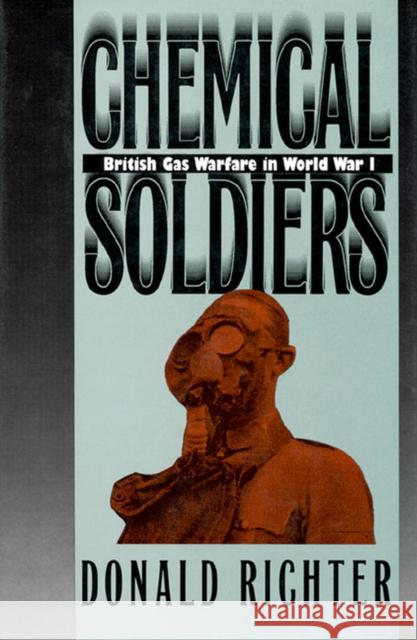Chemical Soldiers: British Gas Warfare in World War I » książka
topmenu
Chemical Soldiers: British Gas Warfare in World War I
ISBN-13: 9780700611133 / Angielski / Miękka / 1992 / 296 str.
They were sometimes the butt of jokes, the "comical chemical corporals." Officially they were the British Special Brigade, sent to retaliate against German chemical warfare, selected, as one of their members said, almost willy-nilly. "They wanted chemists," a young recruit later recalled, ." . . so I looked up the formula for water and told them it was H2O and I was in."
Although the Brigade itself has received little attention since its disbandment following the war, chemical warfare in World War I has been mythologized, sentimentalized, and vilified. Its image has been distorted by legends and sensationalized by half-truths. Taking a new look at the reality of poison gas warfare in World War I and the role of the Brigade, Donald Richter exposes the myths perpetuated over the years by novelists and misinformed sentimentalists and challenges prevailing views. He weaves data from official military records with personal anecdotes from diaries, letters, and memoirs to create a real-life account of the formation of the Brigade and the frustration, fear, boredom, pain, and day-to-day life that followed. Richter presents new information about the details of all the varied methods of gas warfare, from airborne discharges by cylinders and projectors to flame-throwers, smoke screens, and "Beam" attacks. He also explores the ethical and moral scruples of gas soldiers concerning their novel methods of warfare. To make the story complete, Richter takes a critical look at the Brigade's leader, Charles Foulkes, revealing a forceful and capable but stubbornly obstinate commander. This is the first book on the Brigade since the 1934 publication of Foulkes's own Gas The Story of the Special Brigade, a biased and self-justifying account of chemical warfare in which Foulkes exaggerated the unit's successes and ignored its failures.










